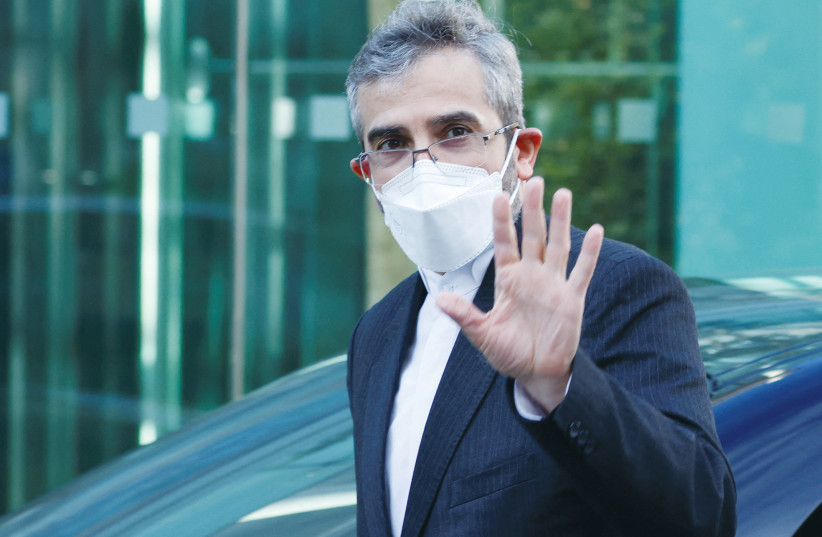Iran faced the European Union’s unofficial deadline to accept the final draft to revive the 2015 nuclear deal on Monday night by keeping up with its demands.
The Islamic Republic did not issue an official response to the EU by press time.
Iranian Foreign Minister Hossein Amir Abdollahian warned earlier in the day that Iran is “looking for a good, stable and strong agreement, but if the other party talks about plan B, we also have plan B.”
Abdollahian told Iranian journalists Tehran has “shown relative flexibility on two issues,” likely referring to demands for the US to remove the Islamic Revolutionary Guard Corps from its list of Foreign Terrorist Organizations and for the International Atomic Energy Agency to drop investigations into undeclared nuclear sites, which held up the negotiations for over five months. The US declined both demands, and the E3 – Britain, France and Germany – would not agree to the second.
Iran is “waiting for the flexibility of the American side in the third issue, which is guarantees,” Abdollahian said. He later added, in that vein, that the nuclear deal “has flaws like any other document, but the main flaw is that in the verification field, our commitments are fully investigated, but regarding the cancellation of sanctions, verification of the other party’s commitments is not very common.”

Comments made by Iranian Foreign Ministry spokesman Nasser Kanaani that though there was progress in recent nuclear talks in Vienna, the draft that the EU has called final “did not completely reach Iran’s legal demands.”
“Whether… this round of talks can [come] near an agreement depends on the other side, particularly the US, meeting Iran’s rightful demands,” he said.
Consultations were taking place at the highest levels in Tehran, Kanaani added.
The United States will provide its views on the European Union’s final draft to save a 2015 nuclear deal privately and directly to the bloc’s High Representative Josep Borrell, State Department spokesman Ned Price said Monday.
Nuclear talks
The 2015 Joint Comprehensive Plan of Action lifted sanctions on Iran in exchange for limitations on its nuclear program. These limitations would expire over time, ending in 2030, with restrictions on the manufacture of advanced centrifuges expiring next year. The Trump administration left the deal in 2018, opting for more sanctions instead, and the Biden administration began negotiating a return to the JCPOA early last year.
The EU, which coordinates the indirect talks between Iran and the US, said a draft it tabled earlier this month was final and that recent negotiations in Vienna were meant to deal with its technical aspects.
The US would not press for the IAEA to close its investigations of undeclared nuclear sites in Iran, US Special Envoy Rob Malley said Friday in an interview.
The probes “will be closed when Iran provides the technically credible answers that the IAEA has requested of them... but not before,” he emphasized.
The IAEA investigation seeks answers from Iran about where the uranium particles are now, and it wants to make sure that the nuclear material found at undeclared sites is “accounted for and that it’s under what is called safeguards,” Malley said.
Malley also denied a report in Politico over the weekend that said the EU also proposed to weaken US sanctions on the Islamic Revolutionary Guard Corps.
